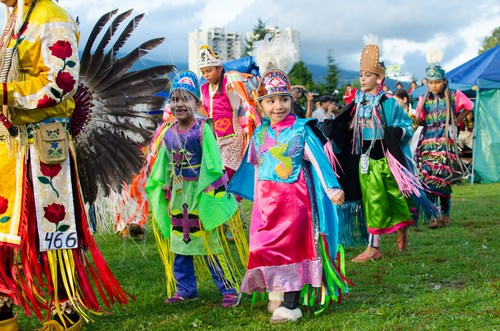What is Indigenomics?
Indigenomics is a new word. It is about approaching economics from an Indigenous worldview.
It points to the growth of the emerging Indigenous economy – a collective response to the lasting legacy of the systemic exclusion of Indigenous peoples from the economic table of this country.
This country is at an important intersection.
Indigenous rights and title have become a paramount issue. And as the question of rights and title has rightfully attracted attention, the Indigenous economy has quietly grown. According to a TD Economic Report, the Indigenous economy is estimated at $32 billion annually.
That can be tripled.
$100 billion is a marker. It’s an insertion into this country’s consciousness, to acknowledge Indigenous peoples as having a place at the economic table.
A $100 billion Indigenous economy is possible today.
An example of this in action is the work of the Coastal First Nations, a collaborative group of nine First Nations working within the Great Bear Rainforest, and facilitating both a conservation economy and economic reconciliation.
Part of the landmark Great Bear Rainforest agreement involved helping First Nation businesses – ranging from ecotourism to aquaculture – get off the ground, become profitable, and create sustainable jobs for the people who have lived there for millennia.
This group is a great demonstration of aligning stewardship, traditional governance and economic development initiatives to work closer with the region, as well as the provincial and federal governments.
Indigenomics acts as a platform for economic reconciliation. It’s not about saying no – or saying yes – to each and every potential opportunity. It’s about finding and creating opportunities that work for each individual Indigenous community, just as Canada and British Columbia work on finding – and creating – opportunities that work for them.
This is the economic imperative in front of our country – a seat at the economic table for Indigenous peoples who have been systematically excluded across time.
Simply asking “who wants to play Indigenomics” serves as an engagement platform to support the growth of the Indigenous economy, innovation, and an invitation towards positive leadership to grow Indigenous business.
Reconciliation is crucial and needs to be talked about more. Economic reconciliation is the space between the lived realities of Indigenous peoples, and taking action for economic inclusion.
We need more examples like the Coastal First Nations. And there will be.
Indigenous communities are resilient – we are still here, and we are powerful.
Canada’s next 150 years needs to incorporate embrace Indigenous economies as an opportunity for the whole country.
Indigenomics is re-storying the narrative from “Indigenous peoples are a fiscal burden” towards “we are an economic powerhouse – we are powerful people!”
Carol Anne Hilton, MBA is the CEO and Founder of The Indigenomics Institute. Carol Anne is a recognized national Indigenous business leader and senior adviser with an international Masters Degree in Business Management (MBA) from the University of Hertfordshire, England. Carol Anne is of Nuu chah nulth descent from the Hesquiaht Nation on Vancouver Island.



